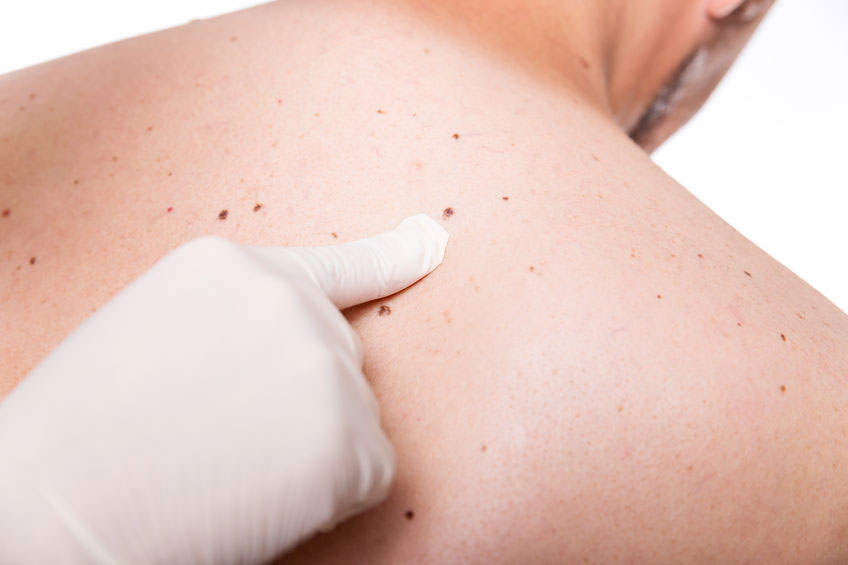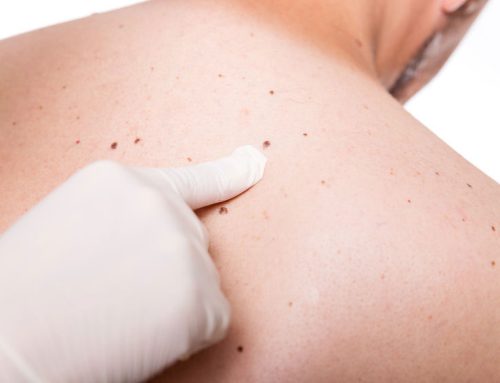What is a Mole?
Moles are small coloured spots on the skin made up of cells called melanocytes, which produce the colour (pigment) in your skin. The scientific name for moles is melanocytic naevi.
Moles are often a brownish colour, although some may be darker or skin-coloured. They can be flat or raised, smooth or rough, and some have hair growing from them. Moles are usually circular or oval with a smooth edge.
Moles can change in number and appearance. Some fade away over time, often without you realising. They also sometimes respond to hormonal changes, for example during:
- pregnancy – when they may get slightly darker
- teenage years – when they increase in number
- older age – when they may disappear from 40 to 50 years of age onwards
Types of moles
There are many different types of moles, the most common are:
- junctional melanocytic naevi – these are usually brown, round and flat
- dermal melanocytic naevi – these are usually raised, pale and sometimes hairy
- compound melanocytic naevi – these are usually raised above the skin, light brown and sometimes hairy
Rarer types of moles include:
- halo naevi – moles surrounded by a white ring where the skin has lost its colour
- dysplastic or atypical naevi (also known as Clark naevi) – unusual looking and slightly larger moles that can be a range of colours and either flat or bumpy
- blue naevi – dark blue moles
When and why do moles develop?
Some moles are present at birth, although most develop during the first 30 years of life. People with fair skin often have more moles than people with darker skin.
You are more likely to develop lots of moles, or a certain type of mole, if they are common in your family.
Where you were brought up may also make a difference – for example, if you have spent a lot of time in the sun, you may have a lot of small moles.
Harmless moles
Most moles are completely harmless. However, they may be unsightly and affect your confidence. Moles can also be a nuisance, for example if they regularly catch on your clothing or you cut them while shaving. These moles can be surgically treated, although it can be expensive.
We can treat a cosmetic mole for you, it is a quick, simple and relatively painless procedure carried out here in our private clinic.
If you are worried about a mole that you have for any reason just ask us for advice about it and get treatment. Call: 01277 201 001





